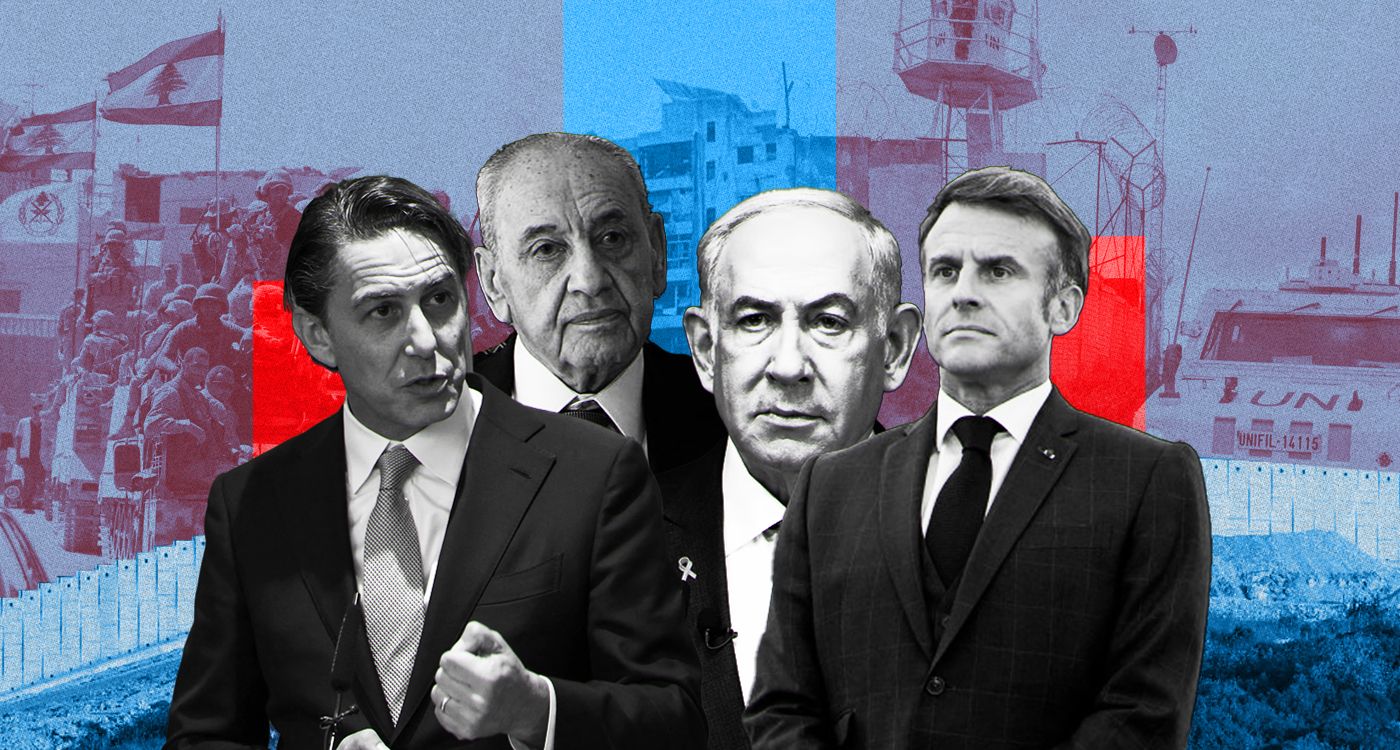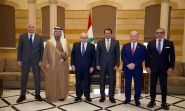
Will the long-awaited agreement between Lebanon and Israel be concluded? According to some sources and several American and Israeli media, the two sides have finally agreed on the terms of a ceasefire. Others, however, dismiss the possibility altogether. The reality is such that between diplomatic efforts to achieve a ceasefire in Lebanon and military escalation on the ground, the race against time is now on. Will Israel and Hezbollah be able to put an end to the increasingly intense clashes before the end of the week? Is an agreement imminent, as some parties are suggesting? What about the agreement? What are its terms and implementation mechanisms? What challenges would its implementation face?
On Monday, after weeks of violent clashes between Hezbollah and Israel, a diplomatic breakthrough seemed to have been achieved. While there has been no official confirmation of this, US and Israeli officials told the Axios media that the Hebrew state's security cabinet is expected to approve the agreement on Tuesday. In addition, according to diplomatic sources, Israeli Prime Minister Benjamin Netanyahu has imposed three sine qua non conditions for the agreement to come into force. For its part, the White House insists that it has not yet reached a final agreement on a ceasefire in Lebanon.
Are the Talks Going Nowhere?
At present, Hezbollah and Israel seem to be caught up in a dynamic where every attack calls for a response, every new military advance for a new escalation. The logic of the conflict is fuelled by internal political calculations and strategic concerns, as Israel seeks to prevent Hezbollah from establishing a new base of attack, while Hezbollah, and Iran more broadly, seek to maintain its influence and legitimacy in Lebanon and the Arab world while defying Israel.
According to Fadi Assaf, co-founder of Middle East Strategic Perspectives, which specializes in international affairs, “if the diplomatic progress we're talking about is real at times and on certain points, it is immediately neutralized by the effects of developments on the military front.” He considers that Israeli Prime Minister Benjamin Netanyahu “thinks he can finally impose, once his military objectives have been achieved, arrangements that Hezbollah refuses even today.” As for official Lebanon, “or what's left of it, it's doomed to catch the fireball that Hezbollah will eventually throw at it, if the pro-Iranian formation breaks out of its denial and recognizes the impasse in which it has found itself, and with it Lebanon and the Lebanese,” he adds.
He adds, “Netanyahu is keeping up the pressure and showing no willingness to compromise. This will remain the case until Hezbollah's military apparatus is completely wiped out (we're talking another 4 weeks), and the official Lebanese authorities, together with the Army, declare themselves ready to assume their full responsibilities.” In his view, this would take a few more weeks and bring us closer to the installation date of the new Trump administration.
Quoting a source who works closely on the dossier, Jean Sébastien Guillaume, expert and consultant in economic and strategic intelligence and founder of Celtic Intelligence, states that “each side wants a ceasefire in Lebanon, and there was no desire to wait for Donald Trump's inauguration in January.” According to this source, “Netanyahu fears that the Biden administration will impose sanctions on Israel, an arms embargo or even seek revenge against him before he leaves the White House.”
In the meantime, the responsibility lies with the American envoy Amos Hochstein. He “knows full well that current developments on the military front and in the political arena (especially in Washington) are making the course of negotiations very unstable and reducing the chances of finding a balance point to finalize a possible agreement,” explains Assaf. According to him, Hochstein “is caught between the ever-widening imbalance on the ground in Israel's favor, and the American political calendar, which is putting pressure on him. The only one who seems to be in a hurry to conclude is himself. It would therefore be perfectly understandable for him to seek to put pressure on the Israeli prime minister and his Lebanese interlocutors, by possibly putting his resignation on the line.”
At present, according to Guillaume, “one of the main items on the agenda will be to address Israeli concerns about freedom of action and ensure immediate cooperation on the issue, insisting on maintaining the option of self-defense.” Hence, the provisions of this famous agreement, on which the parties to the conflict are still dwelling.
What Are the Terms of the Agreement?
To take up the main points raised by Axios, the plan in question would provide for a 60-day transition period during which the Israeli Army would withdraw from southern Lebanon. In the meantime, Lebanese armed forces, supported by the United Nations Interim Force in Lebanon (UNIFIL), would deploy in areas close to the border, and Hezbollah would withdraw north of the Litani River. Also according to Axios, the agreement would stipulate the creation of a monitoring committee, headed by the United States, to oversee the implementation of the text's provisions and remedy any violations.
It is in this context that the Americans would have agreed to support any Israeli military action against imminent threats from Lebanese territory (re-establishment of Hezbollah's military presence on the border, arms smuggling, etc.). Under the terms of this agreement, Israel would have to undertake to consult the United States before carrying out any acts of retaliation after ascertaining the failure of the Lebanese Army to deal with the threat. But what about the conditions demanded by Israel and contested by the Lebanese side, namely freedom of movement in southern Lebanon and the composition of the supervisory committee?
Freedom of Movement in Southern Lebanon
For the negotiations to succeed from Israel's point of view, the Hebrew state requires compliance with the security conditions it imposes, including the possibility of military action if Hezbollah violates the agreement. Today, the United States has played a key role in offering Israel guarantees to retaliate if necessary.
Clearly, “on the diplomatic front, significant progress has been made,” says Jean Sébastien Guillaume. While “Israel has accepted in principle the American ceasefire proposal, which provides for a 60-day truce, it insists on maintaining its freedom of military action in the event of a violation of the agreement by Hezbollah, demanding American guarantees in this respect. Lebanon, for its part, expresses reservations, fearing that these conditions will encroach on its sovereignty.”
Supervisory Committee
Another crucial aspect of the negotiations concerns the creation of a supervisory committee to ensure that the agreement is properly implemented and to monitor any violations. This committee should include members of the international community, including France, an important player in Lebanese affairs and a traditional partner in Middle East mediation. According to recent reports, Israel has agreed to France's membership of this supervisory committee.
In recent weeks, the question of the committee has been a source of disagreement between the parties. “Lebanon proposes a composition including Israel, Lebanon, the United States, France and UNIFIL. Israel, on the other hand, would like to expand the committee to include Germany and the UK,” says Guillaume.
In this respect, he points out that the Hebrew state is seeking to “limit the interference of third countries such as France in this committee, while Lebanon fears an attack on its sovereignty, particularly if the committee is given extended powers.” He adds that “discussions are still underway to determine the composition and mandate of this committee.”
According to Guillaume, the proposed composition of the oversight committee is as follows:
United States: As lead mediator, the United States plays a central role in the formation of this committee. It has offered to lead the committee, offering guarantees to Israel regarding the right to respond to any threat emanating from Lebanese territory.
France: Initially approached to join the committee, France's participation was challenged by Israel, particularly after the French Foreign Ministry announced that it would implement the decisions of the International Criminal Court (ICC) against former Israeli Defense Minister Yoav Gallant and Netanyahu. Israel also criticizes France for being biased against Lebanon. In fact, ICC Chief Prosecutor Karim Khan issued arrest warrants on November 21, 2024, for Netanyahu and Gallant, as well as for Mohammed Deif, the presumed dead Hamas military chief.
United Kingdom and Germany: Discussions are underway to include the UK and Germany in the committee. Their participation is intended to bring a European dimension and reinforce the committee's international credibility.
These countries have expressed their support for the peace efforts and could play a key role in overseeing the agreement.
Added to this diplomatic “mess” is the military escalation on the ground and, above all, Israeli ground incursions on Lebanese soil.
What's the Situation on the Ground?
While the war between Israel and Gaza continues to absorb global attention, the situation in Lebanon, particularly along the Israeli-Lebanese border, has taken a back seat. Negotiations for a ceasefire, although underway, are coming up against the reality on the ground, where every military advance seems to compromise the talks.
Indeed, since the first skirmishes between Israel and Hezbollah broke out in October 2023, the fighting has grown in scale, particularly in the south of the country. While Israel claims to have reduced Hezbollah's capabilities by 70%, the latter congratulates itself on the intensification of its strikes against “strategic” areas of the Hebrew state, as well as on its success in repelling Israeli soldiers attempting to advance onto Lebanese soil.
These “triumphs” are not confirmed by military experts. On the contrary, they note an Israeli military advance in an effort to push Hezbollah fighters back beyond the Litani River and create a buffer zone, extending 10 to 20 km north of the Blue Line.
“The Israeli Army has consolidated its control over a 10 km-deep strip along the border, encompassing strategic localities such as Khiam, Naqoura and Deir Mimas,” reports Jean Sebastien Guillaume. “This advance is aimed at creating a buffer zone to prevent rocket fire towards Israel and secure key positions. The fighting is also concentrated around Biyada, where Israel is seeking to cut the coastal road between Tyre and Naqoura, thus disrupting Hezbollah's logistical lines,” he adds.
“It has to be said that the aim of the current operations is as much political as military: for both sides, it's a question of imposing a balance of power (through arms) that is favorable to them in order to maximize their political gains,” explains Assaf. According to him, “as time goes by, and in the absence of a real Hezbollah coup against Israeli troops or on Israeli soil, the balance of power will continue to tilt in Israel's favor.”
However, the Hebrew state is now faced with a strategic dilemma: how to weaken Hezbollah without provoking an escalation that could lead to a regional war. Although the Hebrew state has overwhelming air superiority, Hezbollah remains, despite the blows inflicted on it, capable of carrying out large-scale retaliatory strikes, without wanting to provoke an all-out war against Israel.
Given the situation on the ground and the diplomatic back-and-forth, the risks of prolonging the conflict and destabilizing the region could be considerable, unless the American envoy succeeds in winning his bet... before it's too late.




Comments